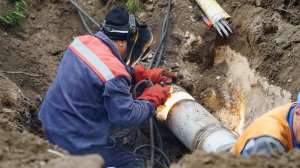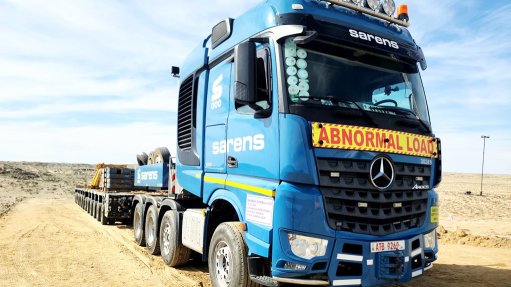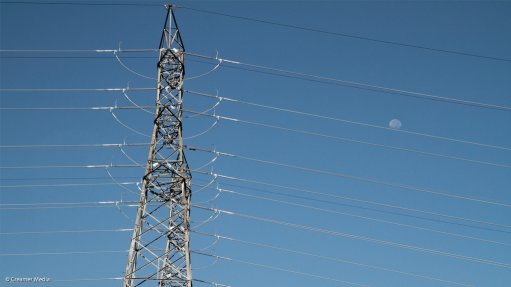Industry body assures job security for welders

Southern African Institute of Welding Certifications CEO Herman Potgieter discusses the uptake of technology in the welding sector.
Despite a marked increase in the uptake of robotic welding systems, owing to Covid-19 and the fast-tracking of automation, artisanal welding will never be completely replaced, says Southern African Institute of Welding (SAIW) Certification CEO Herman Potgieter.
“The Covid-19 pandemic has played a significant role in the implementation of better technology and substituting physical welders in some instances. These instances increased substantially in sectors such as the motor manufacturing industry, where repetition welding is required and uses extensive robot automation and welding.”
However, Potgieter says welding is a critical and strategic skill in South Africa’s economy, which must be developed even more, adding that welding is an enabling technology that underpins all parts of the economy.
In the provision of water and electricity, welding is critical to the build and maintenance of power plants and water infrastructure.
Locally, the majority of artisanal welders are used in the construction and fabrication industry with the end-users being power generation, oil and gas, mining and manufacturing.
For example, every welding repair in maintenance projects for a power producer, must be done based on each project’s environment and requirements.
“In many cases, the manual welder is still the only way of performing the job,” Potgieter stresses.
There will always be demand for welders in industries that require work in confined spaces, at great heights and within a mesh of pipes and cables, he adds.
Industry Challenges
One of the major challenges in the welding industry is changing the popular mindset and stigma associated with being a welder.
“A welder artisanship is sometimes regarded as a low-level job for persons who cannot afford to enrol at tertiary institutions for further studies,” he says.
Unfortunately, demand for employment is focused on the white-collar market and not so much at the artisan level.
A further challenge is substandard training and “certification” by so-called service providers in the welding sector.
SAIW has noticed that qualified and certified welders in the industry do not comply with the minimum requirements of fabrication and maintenance standards.
Fortunately, sectors, such as the petrochemicals sector, in collaboration with government, have started a range of programmes focused on the correct and certified training and upskilling of welders.
“These programmes will also increase local skills capacity that will be beneficial and influence the economy positively,” Potgieter enthuses.
Training Initiatives
SAIW is engaged in ongoing innovation in all its departments, an example of which is the launch of a range of hybrid and after-hours training courses.
The courses are presented in-house and online, allowing for flexible attendance and payment, especially for employed students who have work commitments.
Moreover, welding equipment manufacturers are constantly investigating, updating and implementing new technologies that help learners learn skills better.
Additionally, the new technologies ensure that welding will comply fully with the increasing levels of acceptable standards that have to meet the stringent requirements of the manufacturing codes.
To comply with these requirements, the implementation of ISO 3834 quality and safety welded specific certification is crucial to manage welding activities and welding quality using competent personnel.
The ISO 3834 certification contains the global quality requirements for welding activity, where the actual quality of a weld, including its height and thickness, for example, is assessed – and not only the act of having completed a weld.
“This shows how vital it is to have the knowledge and know-how to maintain safety-critical products, such as boiler units and municipal water pipe infrastructure,” notes Potgieter.
Every power station and municipal department responsible for critical infrastructure installation and maintenance needs ISO 3834-certified, welding coordination personnel to ensure compliance with specific codes and standards.
“It is clearly stated in the ISO 3834 certification that manufacturers of certain welded products, such as pressure vessels, offshore structures and steel structures need to comply with the quality requirements of ISO 3834,” he states.
It is also recommended that companies nominate at least one welding coordinator who has sufficient experience or training to coordinate and manage the welding activities effectively.
To achieve this, the SAIW’s training methodology uses theoretical, in-depth knowledge and practical, real-world skills.
“We are not focused on ticking off a list of training modules as quickly as possible, with little regard for sufficiently practising and mastering a required technique.”
Potgieter concludes that the SAIW training culminates in a test, based on criteria according to ISO 3834 standards.
Article Enquiry
Email Article
Save Article
Feedback
To advertise email advertising@creamermedia.co.za or click here
Press Office
Announcements
What's On
Subscribe to improve your user experience...
Option 1 (equivalent of R125 a month):
Receive a weekly copy of Creamer Media's Engineering News & Mining Weekly magazine
(print copy for those in South Africa and e-magazine for those outside of South Africa)
Receive daily email newsletters
Access to full search results
Access archive of magazine back copies
Access to Projects in Progress
Access to ONE Research Report of your choice in PDF format
Option 2 (equivalent of R375 a month):
All benefits from Option 1
PLUS
Access to Creamer Media's Research Channel Africa for ALL Research Reports, in PDF format, on various industrial and mining sectors
including Electricity; Water; Energy Transition; Hydrogen; Roads, Rail and Ports; Coal; Gold; Platinum; Battery Metals; etc.
Already a subscriber?
Forgotten your password?
Receive weekly copy of Creamer Media's Engineering News & Mining Weekly magazine (print copy for those in South Africa and e-magazine for those outside of South Africa)
➕
Recieve daily email newsletters
➕
Access to full search results
➕
Access archive of magazine back copies
➕
Access to Projects in Progress
➕
Access to ONE Research Report of your choice in PDF format
RESEARCH CHANNEL AFRICA
R4500 (equivalent of R375 a month)
SUBSCRIBEAll benefits from Option 1
➕
Access to Creamer Media's Research Channel Africa for ALL Research Reports on various industrial and mining sectors, in PDF format, including on:
Electricity
➕
Water
➕
Energy Transition
➕
Hydrogen
➕
Roads, Rail and Ports
➕
Coal
➕
Gold
➕
Platinum
➕
Battery Metals
➕
etc.
Receive all benefits from Option 1 or Option 2 delivered to numerous people at your company
➕
Multiple User names and Passwords for simultaneous log-ins
➕
Intranet integration access to all in your organisation


















